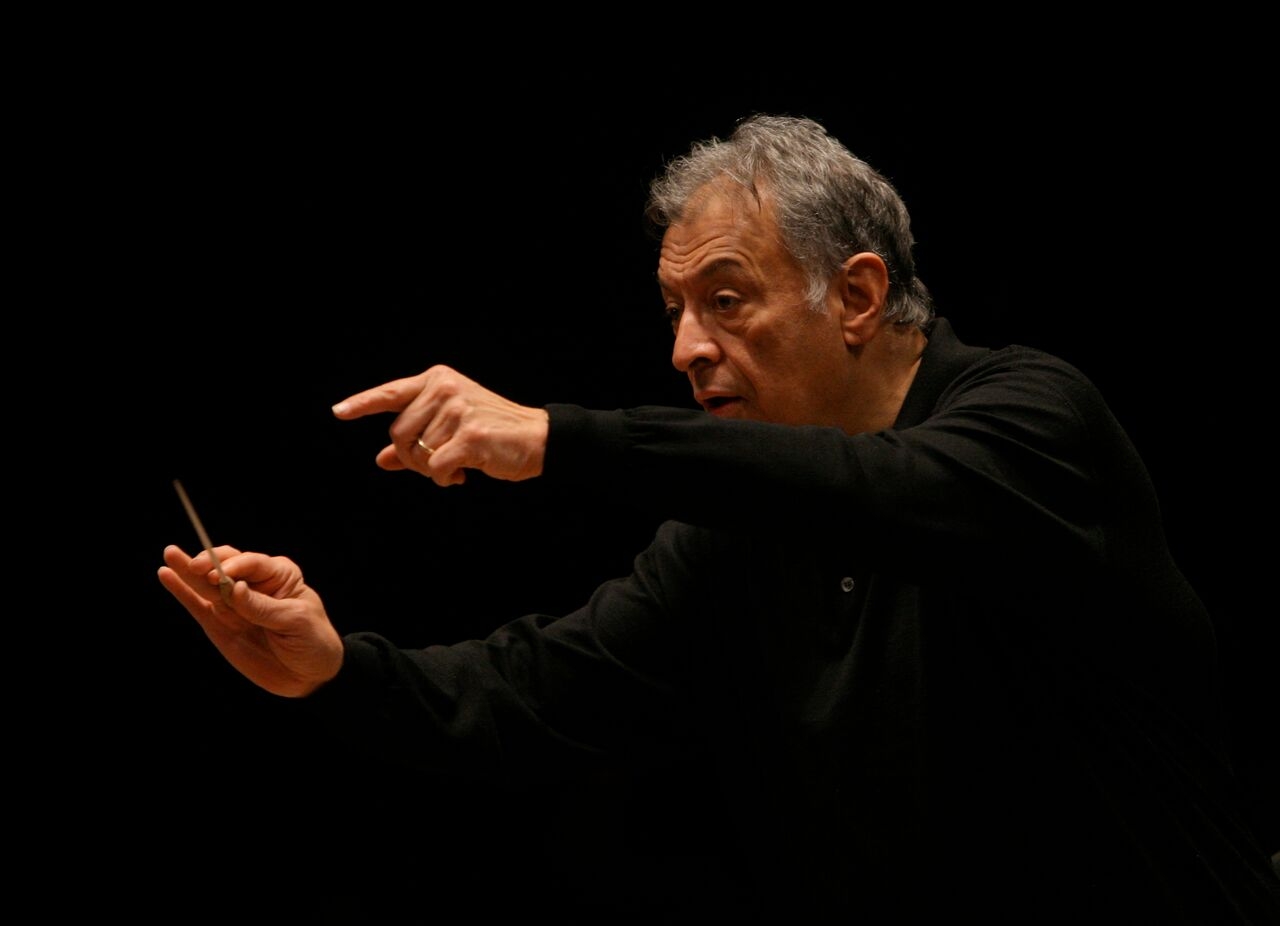Conductor Zubin Mehta returned to Dallas and the Morton H. Meyerson Symphony Center Tuesday night with the Israel Philharmonic, convincingly demonstrating why and how he has fascinated the classical music world for over six decades.
Flanked by the flags of the U.S. and Israel, Mehta and the orchestra, which he has served as music director for nearly forty years, opened with the national anthems of those two countries before launching one of the more intriguing works heard thus far in Dallas this year. Georgian-born Israeli composer Josef Bardanashvili’s tone poem Journey to the End of the Millennium opens quietly with a muffled bass drum roll and lonely tune for solo viola before cascading into twenty-three minutes of constantly fascinating, often surprisingly juxtaposed musical ideas. Derived from Bardanshvili’s opera of the same name, Journey to the End of the Millennium swings madly from gentle folk-like tunes to stark unisons to dense sound mass and dissonance. The piece functions impressively on several levels, telling a specific story (outlined by the composer in the program note), while reflecting on the Jewish and Israeli experience in the twentieth century, and at the same time serving as a showpiece for orchestra. The rich mix of styles here is no hodge-podge, but clearly reflects a tension and overlap of ancient and modern worlds; Mehta and the orchestra communicated a sense of structure and meaning in work that often deliberately represents chaos.
The second item on the program, Ravel’s La Valse, pays tribute to the Viennese waltz; the orchestra played with a constantly impressive level of precision (and a beautifully silken tone, neither too heavy nor too light, from the strings), while Mehta perfectly balanced the glitzy surface with the dark undercurrent inherent in the music.
After intermission, performing Dvorak’s “New World” Symphony, Mehta and the orchestra were once again virtually irreproachable, not only in the orchestra’s technical mastery of the score, but also in Mehta’s impeccable understanding of style and musical architecture—in this case, Dvorak’s sublime marriage of folk-like melody with grand classical structure. Mehta clearly understands how to communicate both elements, acknowledging both the episodic nature of the material and the mighty edifice Dvorak built from that material. An almost raucous rendition of Dvorak’s Slavonic Dance No. 8, complete with light podium shenanigans by Mehta, provided the encore.
Although the performance was well-nigh flawless, the repertoire for the evening was ultimately disappointing in that two-thirds of the program was devoted to overworked warhorses. The Bardanashvili was definitely an asset to the concert, and either La Valse or Dvorak’s “New World” Symphony might be excusable companion piece. But the artistry of these musicians would have been far better served with the inclusion of something else more substantial and less familiar on the menu. Though a large portion of this particular audience didn’t know better than to applaud between movements (oh, well), I suspect a large number of people in the room would have appreciated a little more depth and breadth.





